The Princess’s Man: Series review
by javabeans
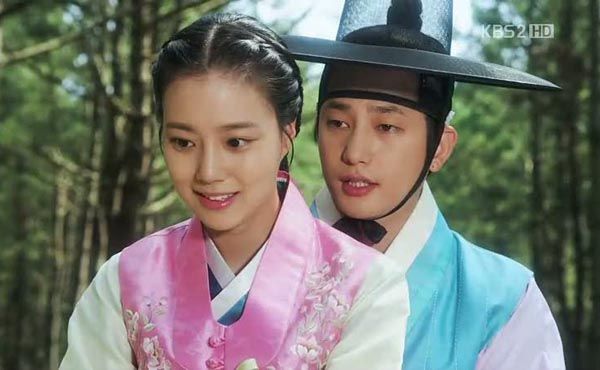
Epic, moving, suspenseful, and superbly paced. If I were limited to only a handful of words, that’s how I’d describe The Princess’s Man, KBS’s romantic melodrama and premium sageuk from earlier this summer. Then again, I’ve never been good with brevity and I do have an open-ended word count available, so let’s cut to the chase and get right to it. Sit back and settle in; this may take a while…
SONG OF THE DAY
The Princess’s Man OST – “Destino (운명)” [ Download ]
Audio clip: Adobe Flash Player (version 9 or above) is required to play this audio clip. Download the latest version here. You also need to have JavaScript enabled in your browser.
The Princess’s Man has been touted, more than anything, as a Joseon-era Romeo & Juliet story, but there’s another Shakespeare analogue that’s just as apt: Richard III. While the Romeo & Juliet comparison is certainly appropriate given the star-crossed-lovers premise, it almost does the drama a disservice in reducing the plot down to a simple idea when it’s really about so much more. There’s political intrigue that’s fast-changing and compelling — not a bunch of static discussions held around a round table for episodes on end — in addition to a central romance that has me fully invested on both sides, backed up not only by attraction and passion but also steadfast ideological integrities. That’s pretty rare, but it makes for such an engaging conflict that’ll have you on the edge of your seat, possibly biting fingernails.
A few misconceptions had me initially wary, but to clear one big one up off the bat: This drama is not depressing. There’s conflict and angst and romantic tension, but it’s not drawn out in a gloomy, mournful way. Some of the circumstances are tragic, inasmuch as any murder and betrayal can be tragic (and there’s lots of that here), but I’d characterize the tone of The Princess’s Man much more along the lines of gripping and sweeping and artfully suspenseful, rather than grim and dire. Also, addicting as hell. (Word of warning: You may want to download all the episodes before starting.)
Note: There will be spoilers. Not every plot point is discussed so those who still want to see it should be able to, if you don’t mind some spoiling. For those who’d like to keep the ending a mystery, though, I’ve separated out the ending discussion so you can skip that section.
THE HISTORY
One of the things this drama does so well is in creating its fictional world within the existing history. The drama’s narrative takes plenty of creative license with the details, and each episode is preceded by a huge honkin’ “We realize that history has been tweaked for entertainment purposes!” disclaimer, so don’t expect this show to hew strictly to facts. What it does is use a famous coup as the jumping-off point for its narrative, fictionalizing the central love story around the real-life political upheaval of the time. A number of characters in the older generation are real historical figures, but their children’s generation — our lead characters — is where the fiction takes over.
In that sense, if real-life history is like a map, then The Princess’s Man is like a sheer layer of fabric laid over the map featuring a complementary pattern. You can recognize the general outlines of the map through the top layer, giving us a peek at the truth while presenting fiction.
The central historical event on which this drama is based is the usurpation of the throne in 1453 by Grand Prince Suyang, posthumously known as Joseon’s seventh king, Sejo. Suyang was the second son of King Sejong the Great, whom you may recognize as the main character in the currently running sageuk, Tree With Deep Roots. At the time, Joseon was still a relatively new state, sixty years in, having taken over from the almost-500-year span of Goryeo before it.
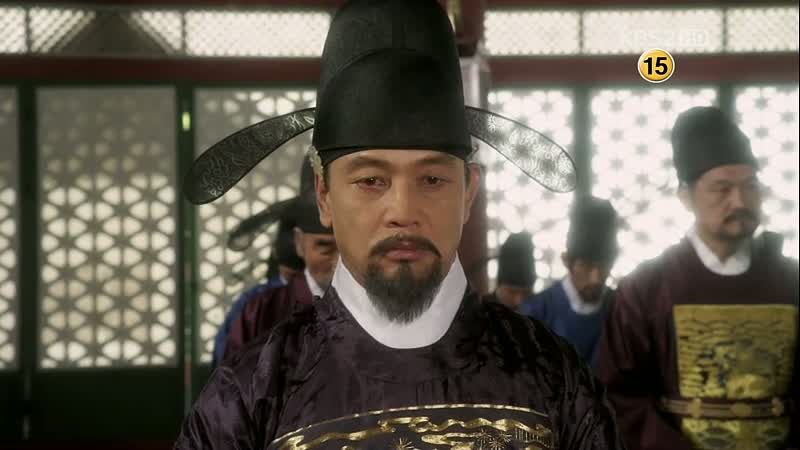
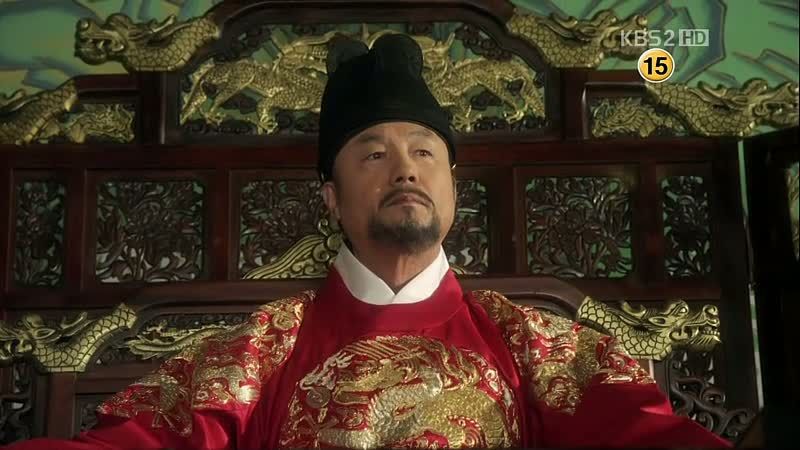
Crafty Suyang, plotting against his brother King Munjong
Sejong had a number of children, but we’re primarily concerned with his eldest two sons. Firstborn Munjong sits on the throne at the drama’s outset, and next in line is his adolescent son and crown prince, Danjong. However, times of transition are particularly unstable when you’ve got (1) a weak king sitting on the throne, (2) a weak successor, and/or (3) an ambitious plotter in the wings wanting his own shot at the crown. In the case of Suyang, all three are true.
Munjong has only been king for two years and his son is still young and inexperienced. Suyang aspires to the throne himself… and the only way to achieve that in this day and age is to get rid of those who stand in your way. Thankfully, he’s not averse to a little bloodshed. Well, thankfully for him; the piles of bodies littering the ground in his wake might think a little differently.
Suyang commands quite a bit of political clout, but he’s not without obstacles. The biggest threat is Kim Jong-seo, the venerated government minister who has both the authority and the balls to stand up to Suyang when others cower and crumble. That threat will have to be neutralized.
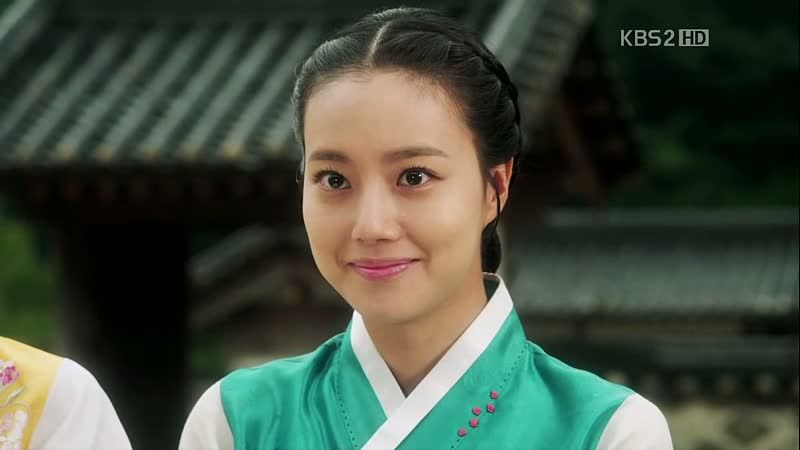
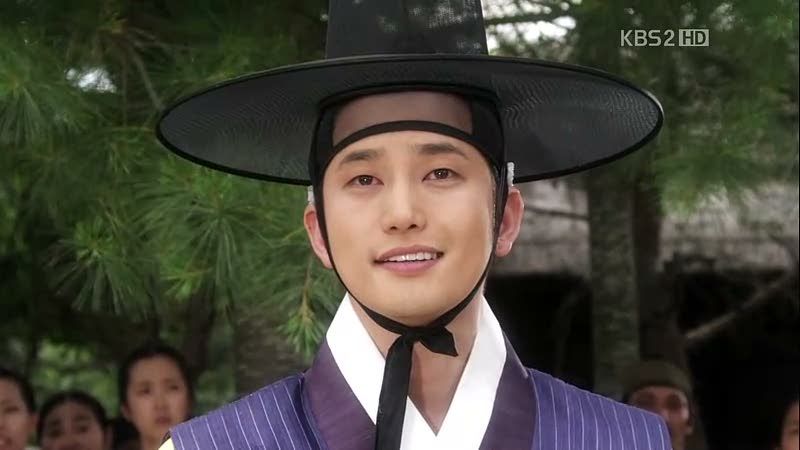
The young lovers: Lee Se-ryung, Kim Seung-yoo
All the above is factually true, but what happens when you throw a (fictional) wrench into the works, by making Kim Jong-seo’s son fall in love with Suyang’s daughter? Things, to put it simply, get complicated.
Those of you familiar with British history may see where the Richard III comparisons come in. Richard III, you may recall, also aspired to a throne that wasn’t his. The younger brother to a king, Richard took up regency of his young nephew when his brother died and passed the crown to the child. He had the boy declared illegitimate, deposed him and locked him in the Tower of London with his brother, where the two Princes in the Tower later died.
This isn’t to say that the story of The Princess’s Man is inspired by Richard’s history or Shakespeare’s play, since chronologically speaking Suyang/Sejo came first. (Richard III was born the year before Suyang’s usurpation, in fact. Hm, must’ve been something in the water in that bloodthirsty 15th century.) It’s just for comparison purposes that I bring it up, since the Romeo & Juliet logline has overshadowed this other correlation.
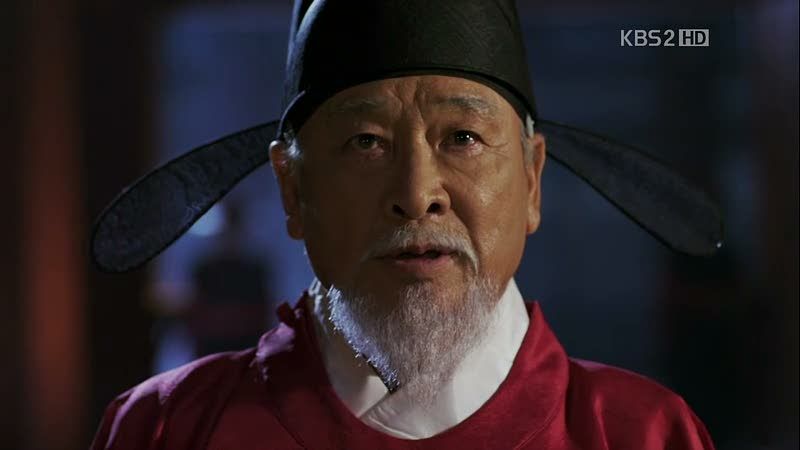
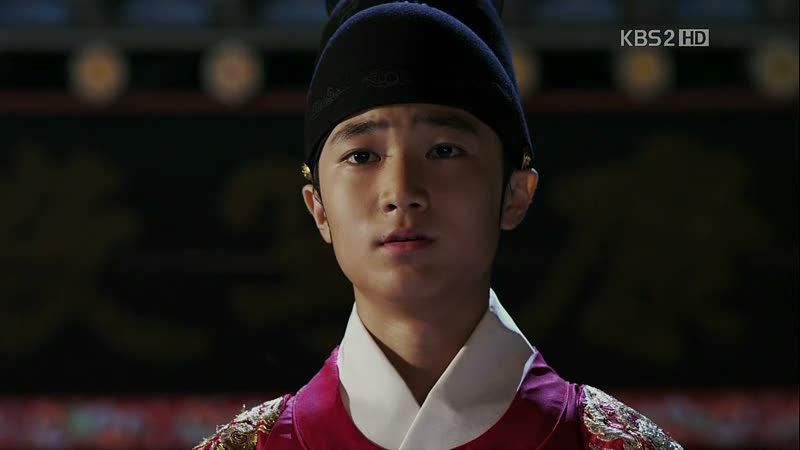
Righteous Kim Jong-seo, teenaged King Danjong
THE STORY
At the drama’s outset, King Munjong is ailing in secret, and because he trusts his brother Suyang (acted by Kim Young-chul) about as far as he can throw him, he’s particularly worried about creating a stable political environment for his son to inherit.
That fear is well-founded, since Suyang is busy orchestrating political machinations. As a way to keep his enemy close, Suyang approaches his biggest rival, Kim Jong-seo (played by Lee Soon-jae), with the proposal to betroth their children: Suyang’s beloved daughter Se-ryung (Moon Chae-won) with Kim’s son Seung-yoo (Park Shi-hoo). Kim Jong-seo is wary of Suyang, suspicious of his motives, as well he should be.
The initial meeting between Se-ryung and Seung-yoo is well-crafted, in that it takes a simple circumstance and twists it and weaves it inextricably with the core of the plot: Se-ryung hears that Kim Seung-yoo is her potential future husband, so when she learns that he has been appointed the new tutor to her cousin, Princess Kyung-hye (Hong Soo-hyun, who’s electric), Se-ryung decides she wants a peek. The girls swap clothes and trade places for the day, and her first impression is not good: She finds Seung-yoo both pompous (he lectures her on edicts, such as how women ought to be men’s shadows) and profligate (he comes to the session bearing a lipstick mark on his cheek, remnants of a drunken night at a gisaeng establishment).
They both decide they don’t like each other, but it’s not long before their aversion turns to interest, then attraction. But things get complicated mighty quickly, and the initial lie about Se-ryung being the princess — made with such silly, light intent — soon spirals far out of control.
It’s an example of the well-constructed nature of the plot, because things in this drama don’t happen without reason, without consequence. Everything has an effect on something else. Their meeting is such a simple issue — including a simple lie — that grows and entangles so thoroughly that the conflict that it sets off becomes an impossibly knotted problem.
The complication? King Munjong hears about Suyang’s secret maneuverings and decides to cut off the threat at the knees — by announcing that he has picked Seung-yoo to marry Princess Kyung-hye. Potentially dangerous union averted.
Se-ryung doesn’t know this and continues to fall for Seung-yoo believing him to be her future husband… while Seung-yoo feels free to fall for Se-ryung, because he believes she’s the princess and therefore his future wife. They continue to meet (often by chance), and the attachment grows quite strong before anybody catches wind of it. Seung-yoo continues to believe she’s someone else, and every time she tries to reveal the truth, she’s prevented.
And while these two are falling in love, Suyang is busily plotting against Kim Jong-seo. Here’s one reason this drama goes beyond the standard Romeo and Juliet story, because we’re given a greater understanding of the enmity between sides, other than just being told that Montagues and Capulets have been sworn enemies for generations. By the time the plot is in full swing, it’s completely clear why the lovers cannot be, juxtaposed with that wistful feeling of “It could have all been so easy” — because given a different circumstance, they would have been married and been perfectly blissful. We feel even more for their plight because we witness the couple’s love and their parents’ strife simultaneously hurtling toward opposite extremes, giving us a growing sense of foreboding as the stakes keep getting upped, and upped, and upped.
For instance, Suyang first does damage to the Kims on a smaller level and forces Kim Jong-seo’s resignation, but that’s not enough. Kim is a formidable man, and he counters Suyang’s power plays so solidly that the only way for Suyang to succeed in his coup is for Kim Jong-seo to die. Also Seung-yoo.
Therefore, he assembles his conspirators with promises of richly rewarding them when he becomes king. One of his recruits is the police chief, Myun, who will play a key role in the coup… and who just happens to be Seung-yoo’s best friend. Myun does not take lightly the burden of killing Seung-yoo’s father — or Seung-yoo himself. However, he finds himself between a rock and a hard place, because if he chooses not to join Suyang, he will be opposing (and perhaps killing) his own father.
There’s one more thing to sway Myun to the dark side: Suyang promises to give him his daughter in marriage, and Myun has been coveting his friend’s sweetheart from afar — even as he knows that Seung-yoo doesn’t know who she really is, and refrains from telling him the truth.
The initial lie twists again when Seung-yoo finds out Se-ryung isn’t the princess, but then believes she’s a lowly orphaned court lady. His engagement to the princess has been called off and he even considers marrying Se-ryung anyway despite the class divide, and therefore it may seem frustrating for Se-ryung to keep her identity quiet. But the drama does a convincing job of explaining why she must keep quiet, so that you’re simultaneously yelling at your screen, “Just tell him! No, you can’t tell him!”
In a nutshell: If she reveals her identity, she endangers her family. What started off as a little girlish prank now takes on dire undertones, because this younger generation is unwittingly drawn in to the political intrigue of their parents’ generation. A girl swapping places with her cousin is innocent. But the daughter of Scheming Politician impersonating the Princess, and consorting with the Princess’s Fiance? Suddenly the issue takes on grave implications and you’re just one secret away from branding your family traitors.
Actual treason wasn’t necessary to be punished as such, since you could kill first, trump up charges later — one of the benefits of surviving to rewrite history. (Which was Suyang’s basic mantra in accusing his opposition of being traitors in order to be rid of them.) In these volatile times, an accused traitor not only forfeited his own life but also his family’s. How could she tell the truth and sentence her family to death?
Even so, heroines have their secret-keeping limits, and Se-ryung is well-written in this aspect. Just when you start to worry that she’s being stupidly noble, or creating bigger problems with her silence, she decides to step up and do the right thing. Case in point: Se-ryung believes her father to be good and noble, because he’s always been the doting father. She is blind to his dark side, but finally she can’t deny it when she overhears him talking of his plans to murder Kim Jong-seo’s family that night.
Her family already knows she’s in love with Seung-yoo and her first attempt to warn his family fails, so they keep her locked up so she won’t interfere. She’s forced think of an alternative and writes a note in her own blood to draw Seung-yoo out of his house, desperate to save at least him, if not his household.
When Suyang’s coup is launched (resulting in what is now known as the Six Martyred Ministers), the romance becomes doomed — because no matter how virtuous Se-ryung is, she’s still the daughter of the man who massacred Seung-yoo’s family. Some things you just don’t get over.
This is the same conclusion Seung-yoo draws when he finally discovers Se-ryung’s true identity, just moments before he attempts to kill her father. He has managed to survive thanks to Se-ryung’s interference, but he’s been badly wounded and left for dead. His feeling of betrayal is compounded because he believes Se-ryung used him all along, that she was being used by her father as a tool in killing his. He doesn’t know the extremes to which she has gone to save his life, defying her own family and risking her own safety, and even when she knows he hates her, her primary focus is to keep him alive. Even if they cannot be together, she is determined to keep him from being executed by her father.
One of the addictive elements of the drama is its artful pacing, and the way it manages to keep you on the edge of your seat. Se-ryung’s actions escalate in accordance with her father’s, and as he marches closer to the throne with more murders, she grows more daring in her attempts to save Seung-yoo. It’s one way that the character Se-ryung showcases a thoroughly modern type of courage and pluck, while operating within the framework of the times. She laments at one point, Why do I have no power? How can I save him? This forces Se-ryung to become creative, and it keeps us guessing, because we’re lamenting the same thing.
The drama backs its characters against stone walls with no obvious way out, keeping us guessing until it produces a solution. Se-ryung is only one person, and how will she be able to succeed against an army? After all, Suyang is hardly going to let a daughter, no matter how beloved, deter him from his lifelong ambitions.
Se-ryung finally does shock Suyang by wielding a sword to her throat and declaring that the moment she hears Seung-yoo has been executed, she will turn the blade on herself.
What I love about this moment is that despite the heightened drama of the action, Se-ryung is not doing this in a fit of histrionics. Nor is she bluffing to scare Dad into compliance. She’s dead serious, but not in the “If you kill my love, I’m just going to DIE!” way.
Rather, she is taking an ideological stance: Her father has shed copious amounts of blood and is no longer affected by death, so she will get through to him with one that does shake him. If he is directly responsible for killing his own daughter, that’s one death he won’t be able to shrug off and forget. This would finally be a death that matters to Suyang, and it’s here that the drama takes the dramatics of Romeo and Juliet’s double suicide and twists them effectively. This isn’t just blind love talking; it’s also a moral stance, a daughter’s last-ditch attempt to recover the father she knew to be upright and good.
She proves her point, Suyang backs off, and Seung-yoo is spared. But shifty Suyang manages to find a way to have his cake and eat it too: He sends Seung-yoo to be shipped to exile, thereby appeasing Se-ryung — and then orders the ship sunk. Seung-yoo is believed to be dead but escapes with a group of prisoners, and what ensues is a Count of Monte Cristo-an tale of revenge as Seung-yoo returns to the capital with a new mane of glory to match his new attitude — bitter, seething, vengeful — and sets out with one goal: Kill Suyang.
Speaking of whom: Another of the drama’s fortes is in its depiction of Suyang’s twisted but also very human psychology. The historical Suyang has an interesting duality in that his usurpation is viewed negatively, but his reign as king was marked by a number of positive advancements. (In the words of my mother: “We call him Suyang when talking about all the bad stuff he did, and Sejo when talking about the good stuff.”) As a drama villain, he’s a complex character who manages to be somewhat accessible even as he’s out killing, maiming, and overtaking. I wouldn’t go so far as to call him sympathetic, but there are flashes of humanity that make him interesting.
For instance, there’s a moment when Se-ryung tells her father that she’s proud to be his daughter. He beams with pride, even as he turns around and plots to use her as a tool in killing Kim Jong-seo. His love for his daughter is never enough to thwart his aims, but it does sour the victory. The more he takes through wrongful means, the more Se-ryung’s respect drops. The drama can’t entirely thwart history by giving Suyang the end he probably deserves — this ain’t Tarantino, after all — but it does show us that he paid a price.
In fact, even after Suyang has become king and gotten what he wants, his daughter’s reaction makes him second-guess himself and wonder if what he did was really so bad. It’s a laughable statement given the rivers of blood running through Hanyang, but poignant in how he arrives at that point.
One of the things I really love about The Princess’s Man is the character of Se-ryung, who demonstrates integrity and character that you don’t necessarily think she possesses at the outset. I don’t think Moon Chae-won was the best actress for this role, but her character won me over so much that I was able to overlook her horrible sageuk diction.
(To put the accent in comparable terms, think of a modern teenager, like, acting in like a total Shakespeare play and stuff. It’s jarring and completely takes me out of the moment, which is unfortunate, but ultimately the story sweeps you up in its thrall. Moon does improve as the series goes on, and while she never becomes good at sageuk-speak, at least it’s better than the early episodes where she’s outright terrible. In her favor are her facial expressions and demeanor, and she’s emotive and convincing particularly in the latter stages; it’s just that her speech is her big flaw. Kinda like Lina Lamont in Singin’ in the Rain.)
But back to Se-ryung: As the series progressed, I found myself increasingly impressed with her, especially given how she started out — cheery, naive, sheltered. The more corrupt her father becomes, the stronger her opposition to him grows. She’s not obnoxious, just firm. Other heroines may be smart or pure or sweet: This girl is pure guts, and I love that.
The drama’s depiction of all the characters’ growth is well-done, but particularly so with her. On one hand, you sort of want to weep for their loss of innocence, and yet it’s the tribulations that forge them into the strong, honorable people they eventually become. Even Seung-yoo begins the drama in relative frivolity, drinking and joking and content in his privilege. It’s the trials they face that prove their integrity underneath that initial soft exterior.
So I love that she’s bold and courageous. Thus the drama gives Se-ryung agency in a world where women had very little. She can’t wield a sword and fight, and she has no political power, but she picks her battles and refuses to compromise her values of honor. She takes a stand for what’s right and makes use of every tool in her power to help. It’s a tricky balance, because while we applaud heroines who fight for love and justice, it’s also hard to applaud a heroine who could actively fight against family, no matter how corrupted. It’s just not the Confucian way. Filial piety is paramount, over romantic love or personal desires.
So it’s to Se-ryung’s credit that she manages to make her disapproval crystal clear, yet without entirely disrespecting her parents. Even when her father becomes king, she rejects the title of princess, though not in a loud, theatrical display. For instance, in one scene she is about to be introduced as princess, but cuts off the speaker to introduce herself as Se-ryung, circumventing the title she cannot in good conscience take. People do call her princess and she learns to let that battle go eventually, but it’s meaningful when she tells her father — whom she continues to call Father rather than the term she is expected to use, for the king — that she will not recognize any princess in the land but Kyung-hee.
Speaking of whom, it would be remiss to ignore Princess Kyung-hee, who positively shines. Or rather, actress Hong Soo-hyun does, reinventing her lackluster earlier career with this one commanding role, equal parts pride and vulnerability.
Kyung-hee spends her days cooped up in the palace walls and has a fondness for collecting ornaments and accessories and caged birds, reflective of her own state in the gilded cage of a palace. And although her sisterly relationship with Se-ryung sours as Suyang begins his takeover, the series does a solid job in playing this out believably. Even though she accuses Se-ryung of being happy about Kyung-hee’s broken engagement to Seung-yoo, she’s not lashing out at Se-ryung out of jealousy or petty vindictiveness, but because she’s genuinely frustrated that Se-ryung refuses to see what everyone else does: That Suyang is out to usurp.
Another series highlight is Kyung-hee’s relationship with Jong (Lee Min-woo), the husband that is picked for her after Seung-yoo is rejected. Jong happens to be Seung-yoo’s best friend (along with that traitor Myun), and has a wonderfully gentle, playful nature. He’s thrilled to be marrying the princess, but she complies only out of duty to her father’s dying wishes and keeps Jong at arm’s length, a husband in name only. Given that their first encounter is unflattering to him (he’s being chased by debt collectors), Kyung-hee maintains a negative impression of him, and he patiently does what he can for her while respecting the boundaries she erects.
What’s beautiful about this relationship is that Jong never has a chance to prove that he would be a good husband to her, so he proves it by just being a good husband to her. It kills me, this gradual blossoming. He’s constant and faithful and always on her side, and by degrees Kyung-hee starts to see his good nature shining through. He doesn’t do things to earn her good favor, he just does them because he’s there for her and he loves her.
When she realizes her feelings and admits them, it’s framed in the context of him having become indispensable to her; perhaps she doesn’t know how or when it happened, but one day she looks around and realizes he’s always been there. In one of the drama’s most romantic moments (to me), Kyung-hee marks the shift in their relationship by calling him, for the first time, “husband.” Just as nomenclature is important to Se-ryung who deliberately avoids calling her father the word for king, Kyung-hee has called Jong by a formal term, and it’s not until she calls him the common word for husband that he truly becomes one to her.
Of course, part of the reason that love relationship is so strong is because their ideals are aligned. I love that The Princess’s Man does this with Kyung-hee and Jong, as well as Se-ryung and Seung-yoo. I confess I probably would have found it tedious after a number of episodes if all this drama were focused purely on the angst of the Romance That Cannot Be. There’s only so much pleading, “But I love him!” that you can take before it starts to grow wearying.
But the romance is inextricably tied into the fight for justice; Se-ryung is fighting to get Suyang to stop the killing as much as she fights to keep her love. When Suyang later accuses her of plotting against her own father (“And all for a man!”), she counters that she has never wished harm for her father, and merely wished for the bloody mayhem to stop, and for the return of the father she once knew.
Even with all this, though, our Romeo and Juliet are still at odds; she loves him, while he fights his love for her with reminders that he needs to avenge his family’s murders. At several points, he is urged to just take Se-ryung and run away, but he can’t give up on his work — especially when he is committed to the bigger fight to topple Suyang. It’s no longer just about personal vengeance, but a greater injustice.
It’s only after Se-ryung finally cuts ties with her father that this obstacle is removed. If she had disowned her father earlier on, aside from lacking material for a 24-episode drama, it would have seemed precipitate: Oh, you can cut out your father just for a man?, just as he accused. But the drama gradually intensifies Suyang’s moral descent until Se-ryung can’t be a part of this family any longer; it’s not romantic attachment driving her, but her own code of honor.
Only then can Seung-yoo accept Se-ryung without qualms, and they declare themselves married with an exchange of rings. When they tell each other that “we are one body now,” they refer to their unity of purpose as much as their marital state.
It’s because of their mismatched values (well, among other reasons) that Myun is doomed to forever stare at Se-ryung’s back. He’s willing to compromise his ideals in getting what he wants, whereas she would never abide that in him.
It’s significant that Myun sees her as an object to possess, and in fact what initially gets him to choose Suyang’s side is Suyang whispering into his ear like a devil on his shoulder, saying that Se-ryung is his promised bride and that he ought to consider her above his old friend. Suyang has cleverly reframed the issue in Myun’s mind: She isn’t your friend’s woman that you want for yourself, she’s yours and you need to protect your own. Ergo, join me and kill Seung-yoo. Even later in the series after it’s clear she’s committed herself whole-heartedly to Seung-yoo, and that she’d rather die alone than take a husband other than him, Myun growls at her, “You are mine.”
The drama offers an interesting examination into the nature of friendship with the trio of Seung-yoo, Jong, and Myun, with Jong being the most idealistic, Myun caving to seflish pragmatism, and Seung-yoo somewhere in between, though closer to Jong. I do appreciate that Myun isn’t an outright villain, however. Like Suyang, I never quite feel sympathetic toward him, but I see him more as a weak human than an evil one.
Despite what I said previously about Myun joining Suyang under duress, in the end it is his choice, no matter how he frames it for his own conscience. For instance, early on when the friends first start to take divergent ideological paths, there’s a moment when Seung-yoo suffers at the hands of the opposition. But he offers to put their fathers’ politics aside so as to relieve Myun from feeling guilty for his father’s role in it. When the situation is flipped, Myun can’t extend the same generosity of spirit.
Myun declares time and time again that he will kill Seung-yoo, especially as Se-ryung’s rejections of him grow colder, with such frequency that it’s almost funny (seriously, you should make it a drinking game). But in the end he can’t do it, on multiple occasions. I don’t think that excuses any of his decisions, because he was willing to contribute to Seung-yoo’s death even if he couldn’t deliver the deathblow, but it shows that he’s not actually content with his choices.
I appreciate that he’s conflicted about his choices, even as he goes and makes all the wrong ones, and you can see that he’s haunted by them. His old teacher urges him that it’s not too late to be a friend to Seung-yoo: “Be friends who save each other.” And in the end, he can at least do that much; it’s not full redemption, but gives complexity to his inner struggle. Which is why you can make an argument for Myun’s humanity, but not his nobility.
The Princess’s Man OST – “그리움 지고” (With Longing)
[ Download ]
|
Audio clip: Adobe Flash Player (version 9 or above) is required to play this audio clip. Download the latest version here. You also need to have JavaScript enabled in your browser. |
THE ENDING AND RELATED COMMENTS
There’s a notion of equality running through the love story that I find deeply satisfying, because it’s a concept that evolves over the course of the series. In their first meeting, Seung-yoo smugly recites adages emphasizing that woman’s place is behind a man — her father, husband, then son. Ergo, she is his shadow. When he asks her to be his wife, he tells her that they’ll be each other’s shadows from now on.
After Seung-yoo becomes Dark Avenger Seung-yoo, he’s always on alert for danger and sleeps sitting up with a knife at the ready because there was nobody he could trust. Finally with Se-ryung back by his side, he confides, “If only I could lean against someone, I might sleep easily.” Se-ryung props his head on her shoulder, and he sleeps.
The equality theme extends into the horseback riding motif, which provides a nice bookend for the drama. One of their early encounters arises when Se-ryung — who dearly wants to ride despite being forbidden — sneaks out on a horse which bolts out of control. Seung-yoo saves her, and she asks him to teach her how to ride, because then she could ride safely. He tells her that when they marry, he’ll teach her how to ride, allowing her a freedom as his wife that she is denied by current social norms.
Horseback riding also offers, or betrays, personal intimacy. It’s why Se-ryung furiously denounces Myun the one time he loses his temper with her and forces her onto horseback with him. She hates the contact and dismounts at the first opportunity, and he finds himself shut even further out because of it. Later, when Seung-yoo is still furious at Se-ryung for the betrayal, he takes her away on horseback but is so rattled at the contact that he gets off and walks instead. Following their reconciliation, he takes her away again and wonders, “Why don’t you ask where we’re going?” Her reply: “It doesn’t matter.”
And finally, the ending: Seung-yoo is finally captured (because he didn’t kill Suyang when he had the chance), beaten half to death, and sentenced to execution. Se-ryung is devastated but honors his desire to die rather than renounce his beliefs, and finally her mother — who has watched her husband becoming ravaged by his rage and bloodlust — decides that she can’t lose another child and orders Seung-yoo declared dead. Se-ryung is reported to have committed suicide in response (another twist on the classic Shakespeare), and the two are carried outside the city as “corpses,” giving them the freedom to live in obscurity.
The beating leaves Seung-yoo blind, however, and when we see them a number of years later in the drama’s ending sequence, Se-ryung leads him to a field where he is ready to try riding a horse again. She asks if he’s afraid, and he answers no — because she’s there, guiding him.
My first reaction to the ending was one of disappointment, because it seemed such a waste to have Seung-yoo give up his resistance work when so much of the drama emphasized that he was committed till the end, that he would never compromise that in order to live easy. It goes against everything he and Jong stood for, and I felt it was a letdown. The more I reflect on it, the more at peace I am with the resolution, because Seung-yoo gets the chance to warn Suyang that killing him doesn’t matter — the resistance will come back, somebody will take his place, and Suyang will never rest easy. That much is true, because Suyang is haunted by ghosts for the rest of his days, unable to sleep or shake off the guilt that comes from killing your daughter in your greed. So when he sees — with the Queen’s intervention — that Seung-yoo and Se-ryung are alive and well after all these years, he gains a small measure of peace.
And, as Seung-yoo tells Se-ryung in the final scene: He may have lost his sight, but he regained his heart. Just as he lost his revenge, and regained her.
FINAL THOUGHTS
In almost every respect, The Princess’s Man delivers a solid, emotional, gripping storytelling punch. It’s got an epic score and a gorgeous visual appeal which, to my disappointment, fades a bit after 7 or 8 episodes (a camera switch?). The change isn’t a huge issue, but man, thinking of how the drama could’ve looked if it had maintained that level of cinematographic flair makes me a little bit sad at what could have been.
If I have to nitpick, I have to admit that the drama didn’t get me straight in the heart even though mentally I was completely engaged, which is why it doesn’t quite topple The Return of Iljimae as my top sageuk. But it did get my blood pumping and the story often swept me away, offering a welcome surprise — especially after expecting doom ‘n gloom. Often in sageuks I find that political dealings take up a lot of screentime without a lot of forward movement, but this drama gets going at a roaring pace and never lets up.
Plus, it’s got one of the most compelling romances I’ve seen in a while. This is something that’ll probably differ widely for various viewers, because people react so differently to various romantic pairings that there’s no predicting who will respond to what. But I find that in so many drama romances, I’m really onboard because of one side, one awesomely compelling character for whom I wish all happiness and success. So the other person is just along for the ride. In this drama, both sides were convincing and heartfelt. You’re pulling for them to find a way to make it work, even though you have no idea how it could possibly work. That’s some good writing.
All in all, this is a drama that delivered on its premise and then some, and probably ranks as one of my top picks of the year.
RELATED POSTS
Tags: featured, Hong Soo-hyun, Lee Soon-jae, Moon Chae-won, Park Shi-hoo, Song Jong-ho, The Princess's Man
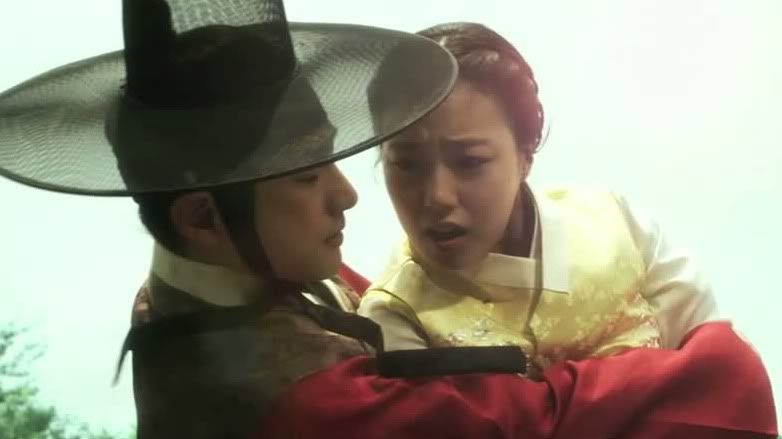
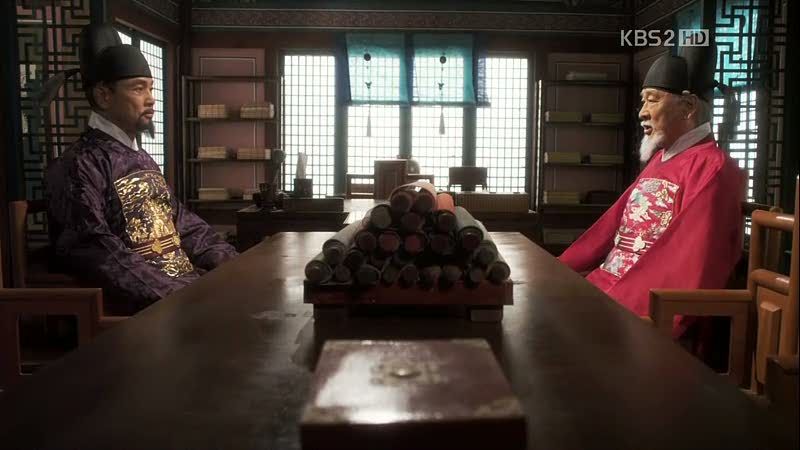
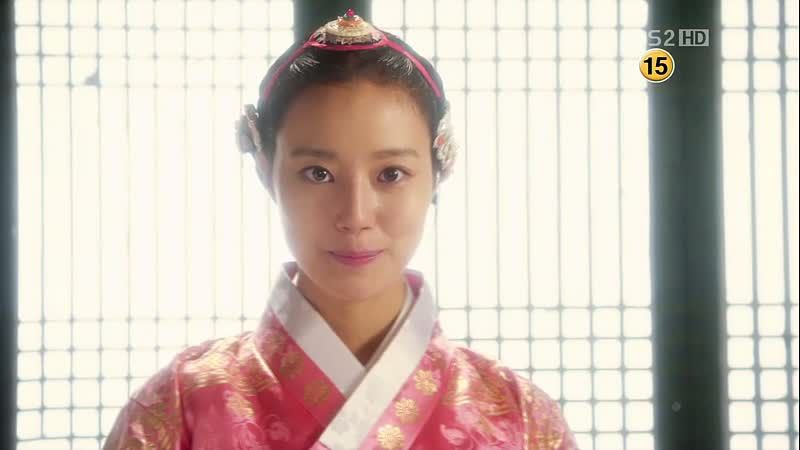

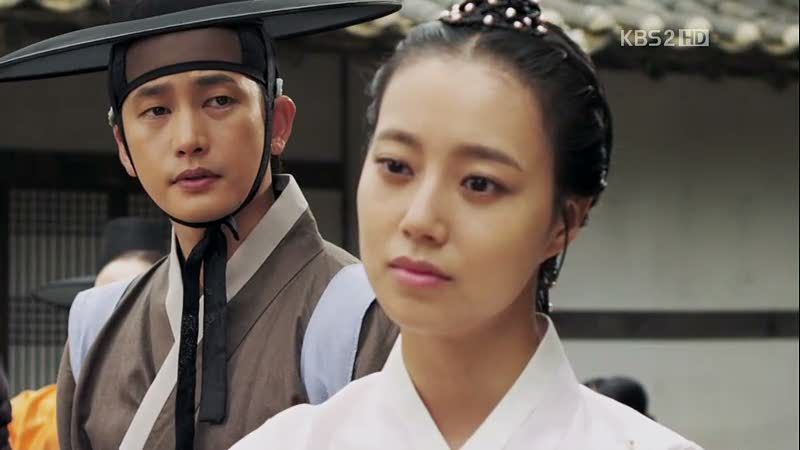
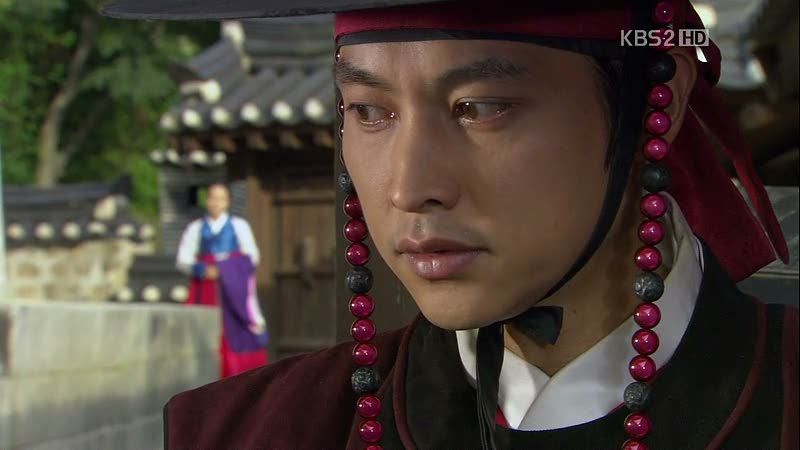
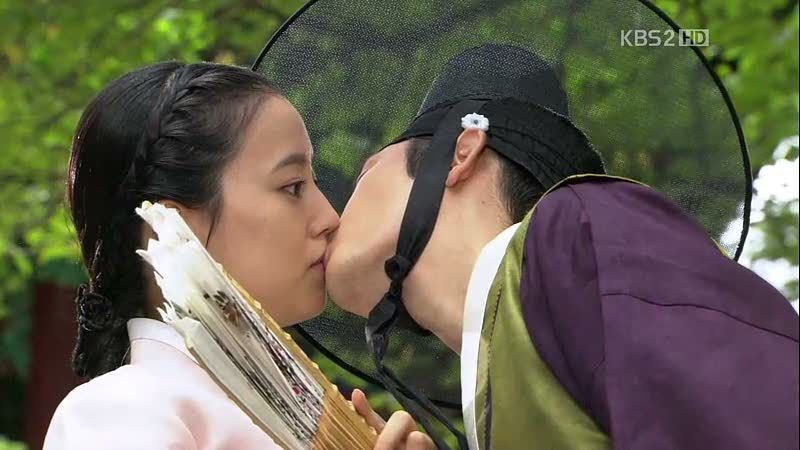
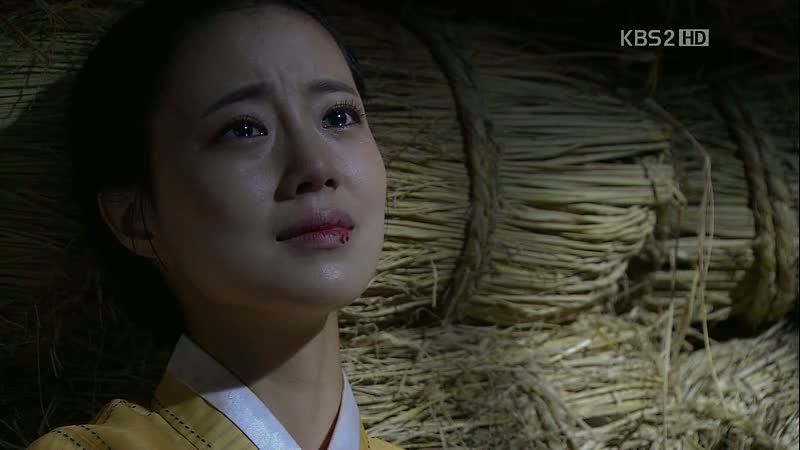

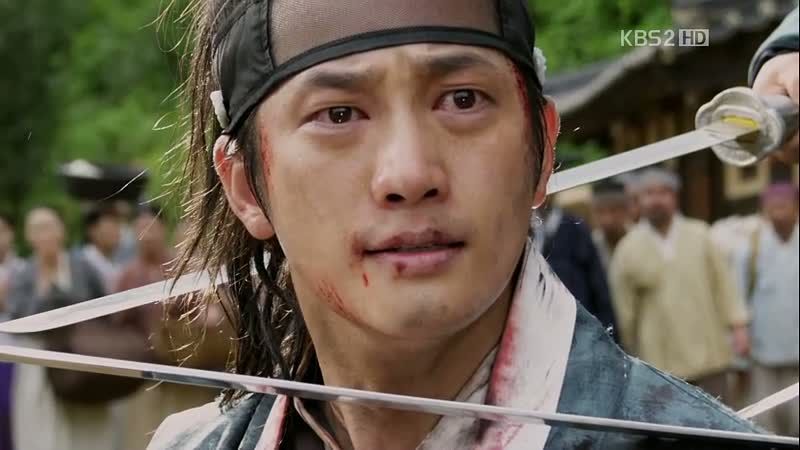
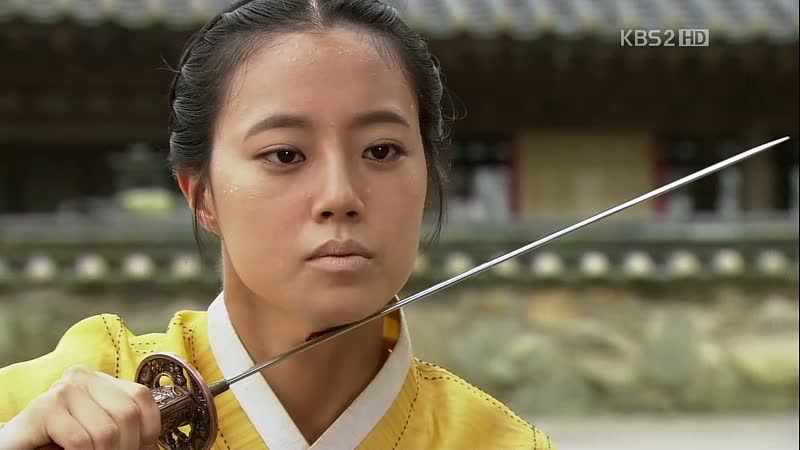
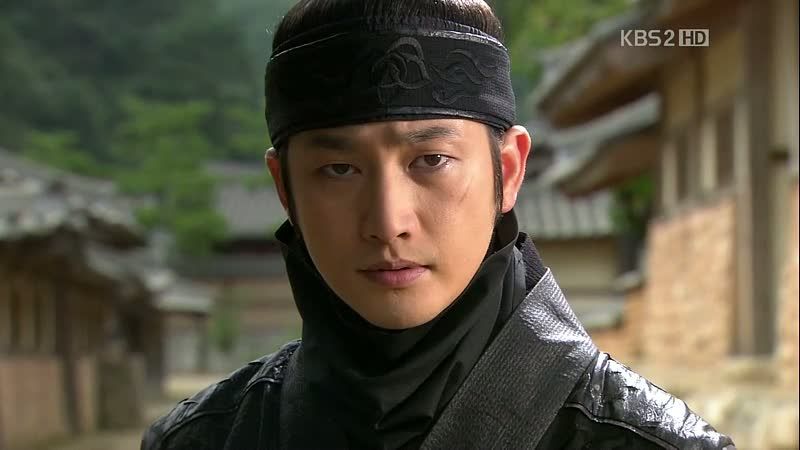
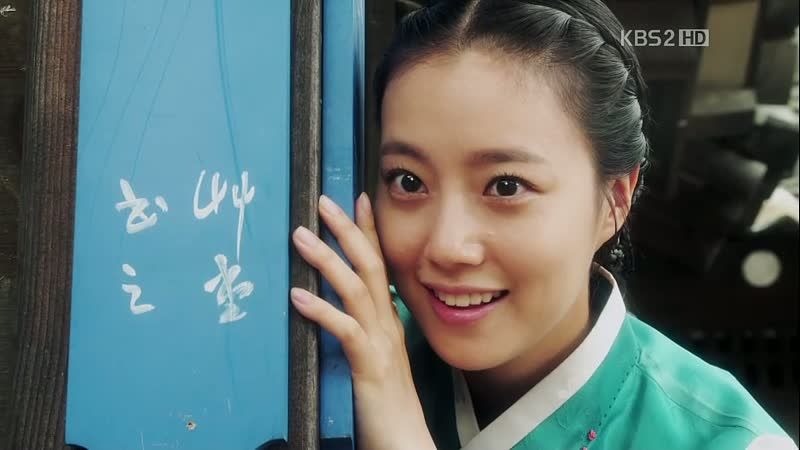
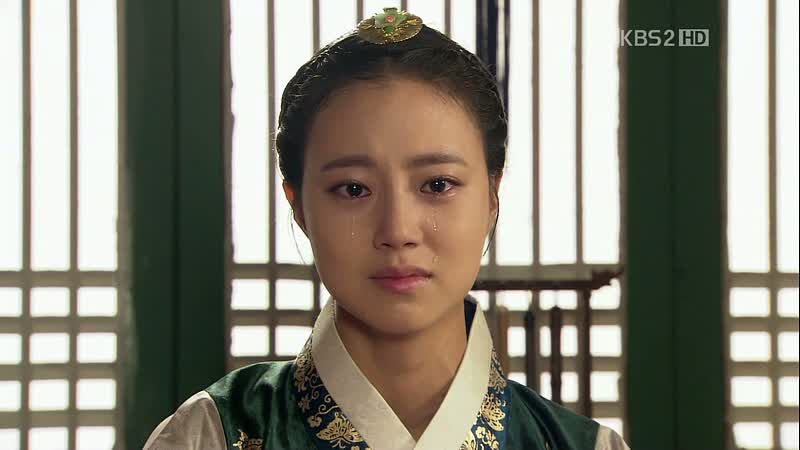
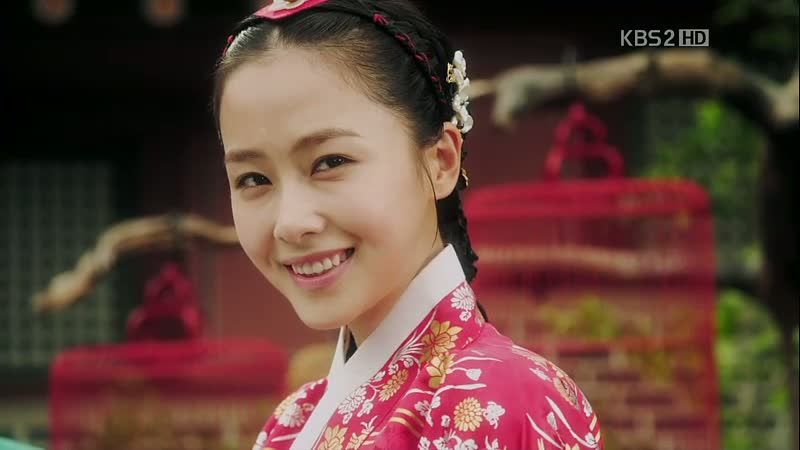
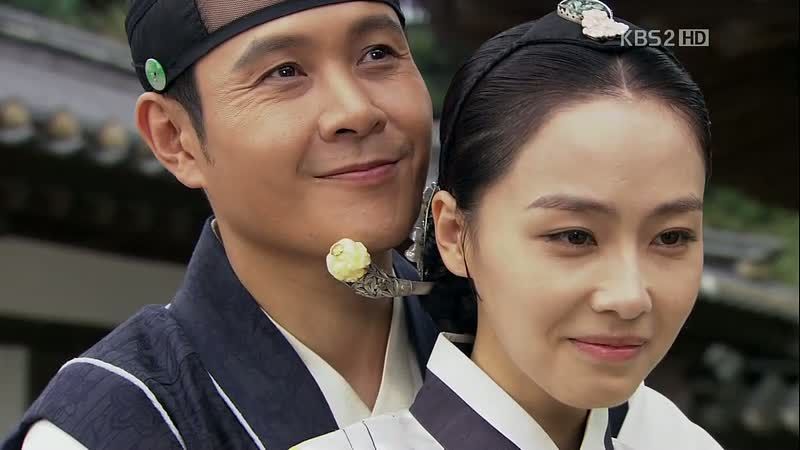
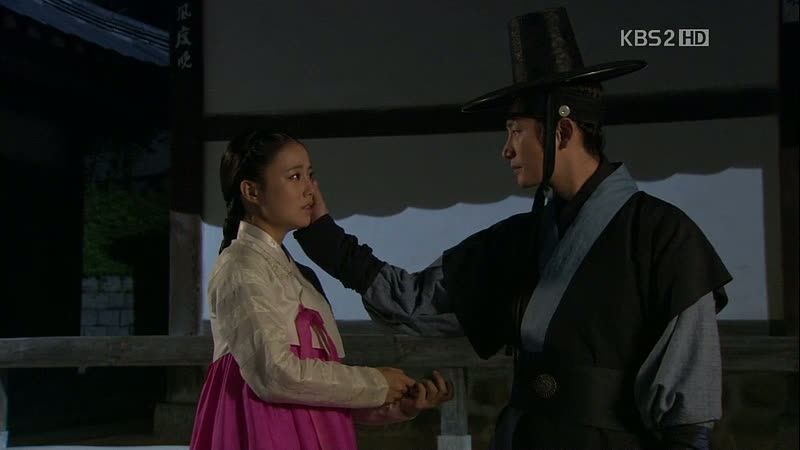
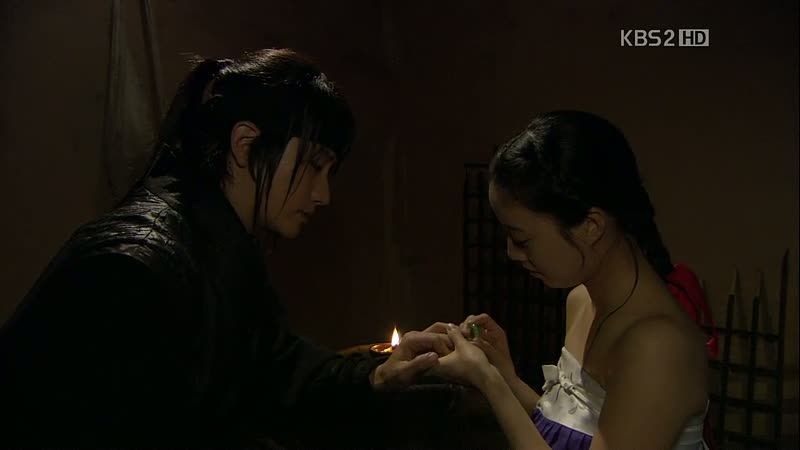
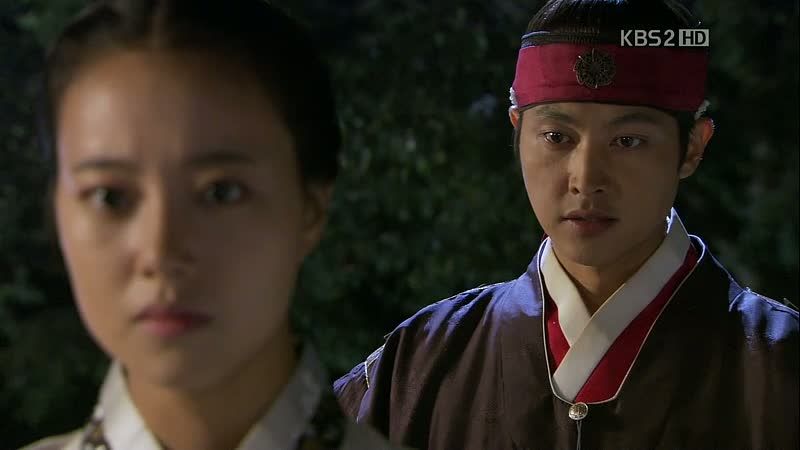
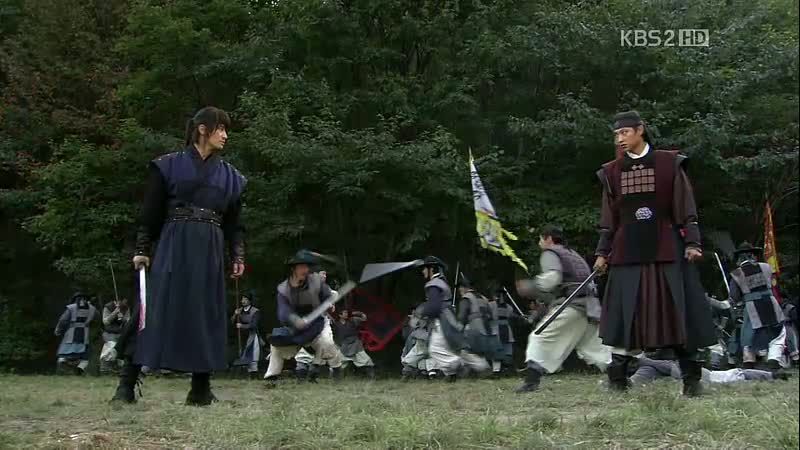
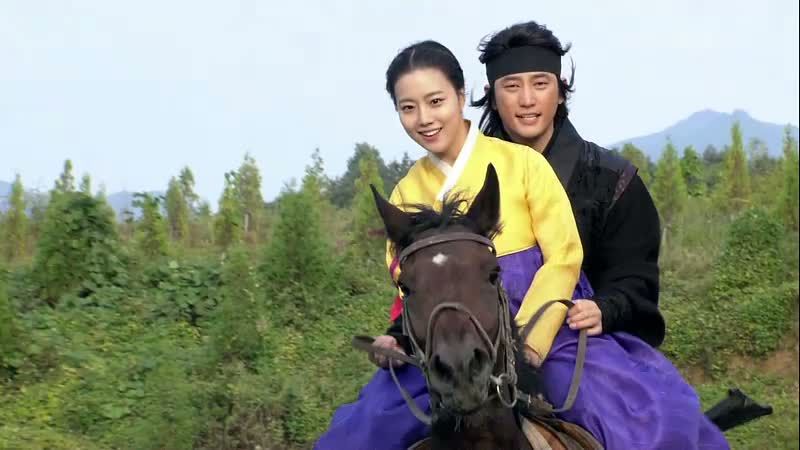
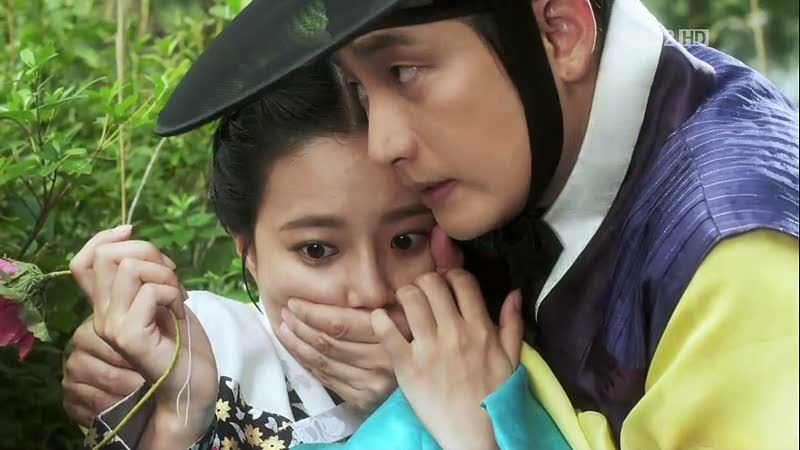
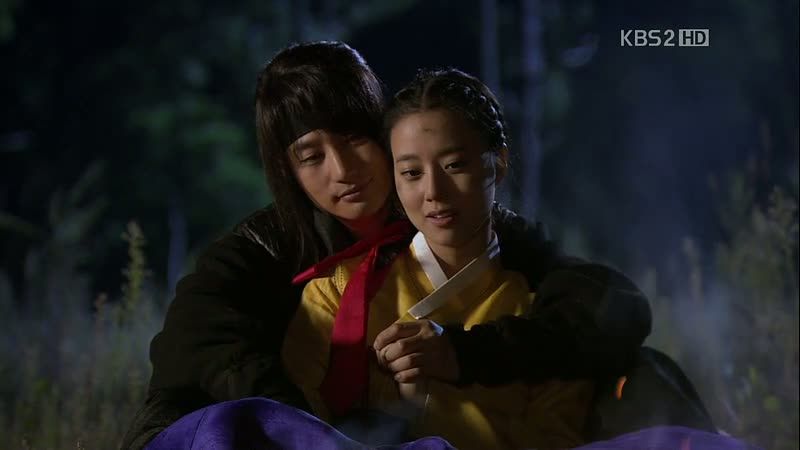
 Interview with Kim Yoo-jung
Interview with Kim Yoo-jung Hello Dramabeans series
Hello Dramabeans series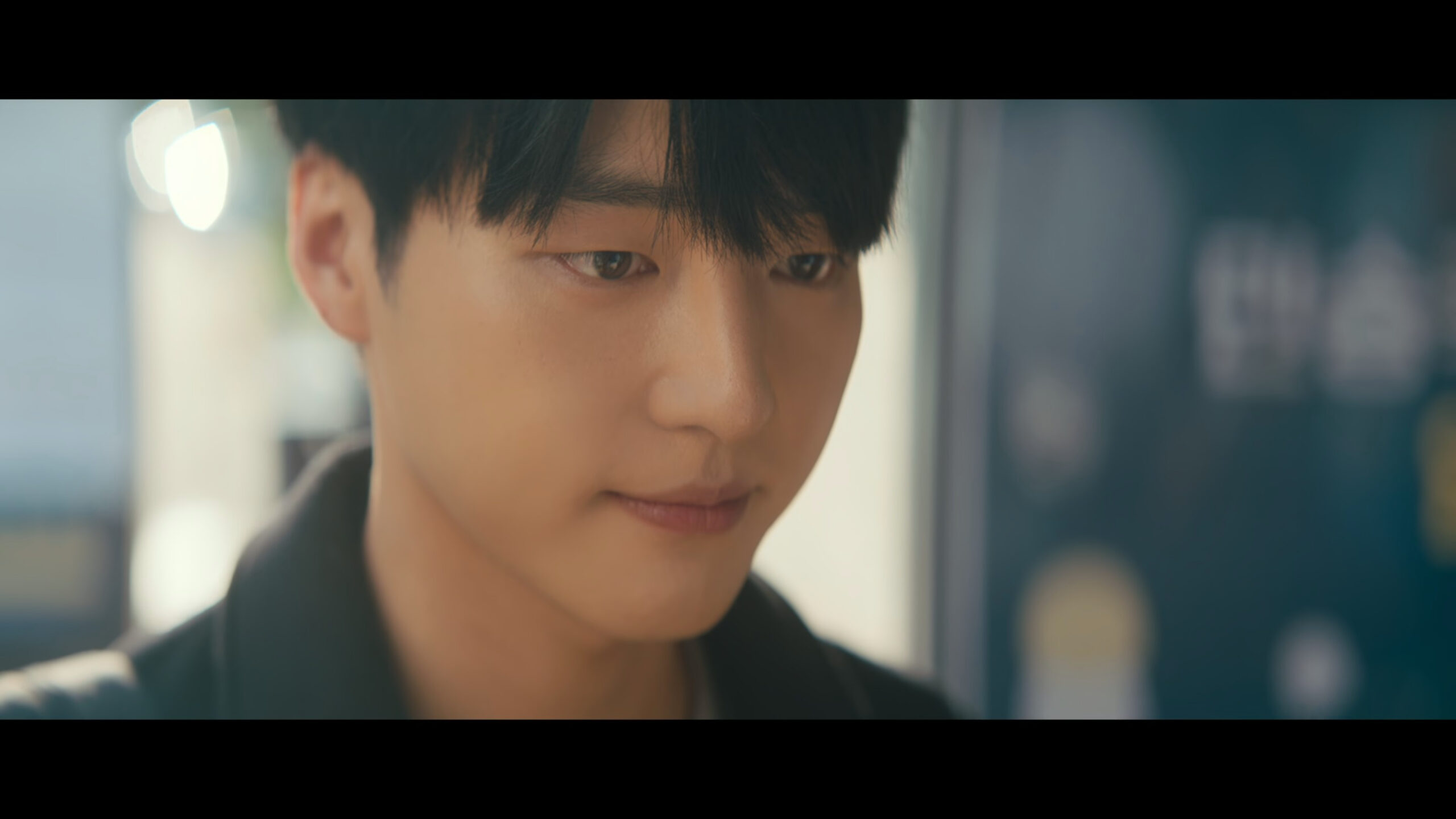
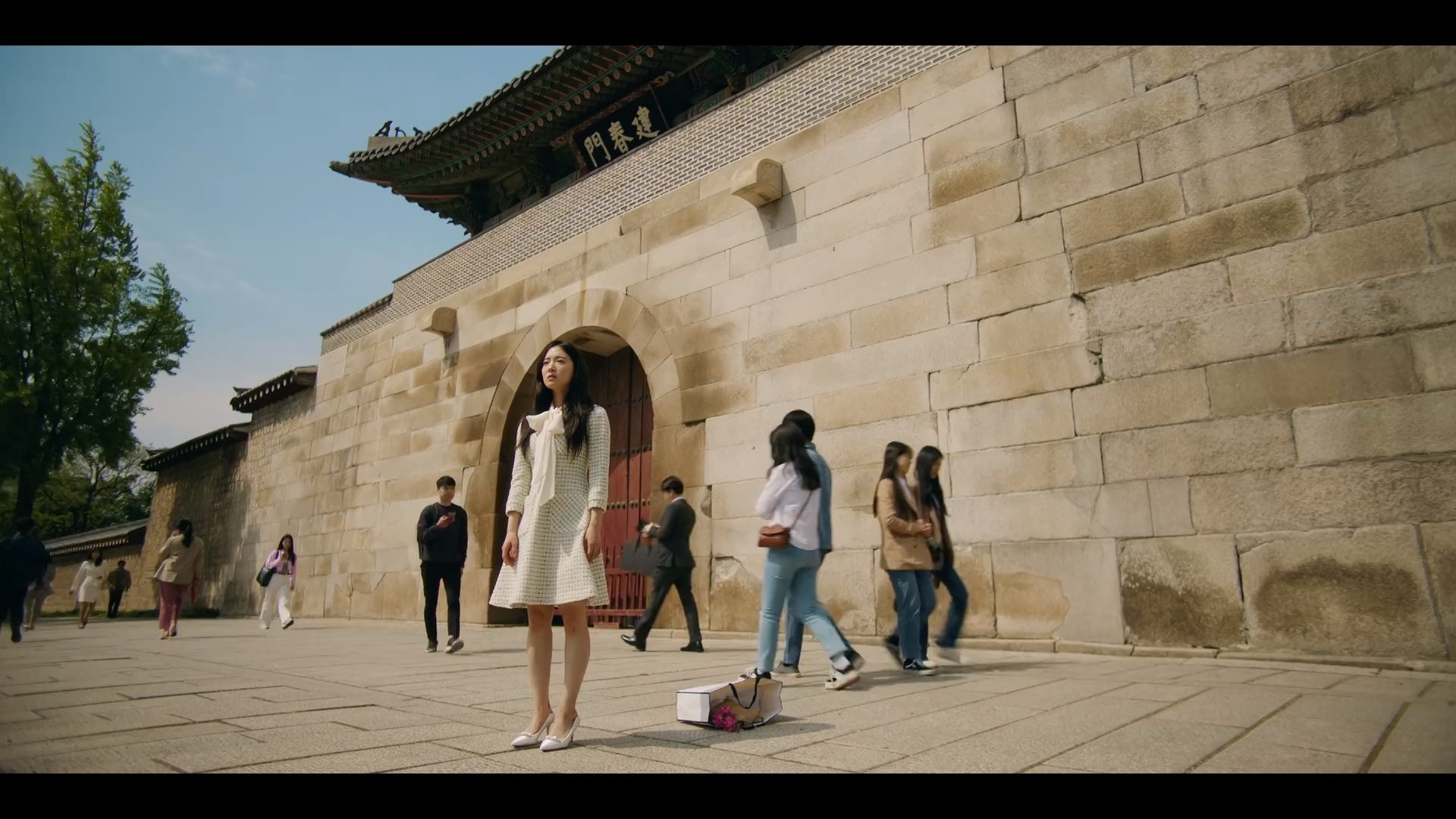


![[2022 Year in Review] The Bean Count](https://www.dramabeans.com/wp-content/uploads/2022/11/beancount_2022.png)

Required fields are marked *
Your email address will not be published. Required fields are marked *
151 Rachel
November 4, 2013 at 12:45 AM
OK. This may be a surprise to some of u, but after i finished watching The Princess' Man, i was on the verge of smashing my computer screen. True, the progress of the story was amazing but by the last 2 episodes, i basically had to force myself to finish it, hoping for a good twist.
Have we all forgotten the main purpose of the drama? Defeat the evil, bring back justice, take revenge and so on? But what happened at last? I was thinking, WHAT THE HELL WAS THE POINT OF HUNDREDS OF PEOPLE DYING IN THE SHOW?!?! At the end of the day, the evil king still sits on that damned throne, my favourite hero became blind and useless AND no revenge was done.
So let me sum up the plot. This guy wanted to take revenge. Lots of people died in the process. No revenge-progress made. He lived happily ever after. (Just kill me already.)
Required fields are marked *
Nana
June 8, 2016 at 2:42 AM
Well said I could not agree more! Tedious long winded and frustrating shallow shallow!
Required fields are marked *
152 AMY
November 16, 2013 at 4:59 AM
Hi. Can you tell me guys what is the title of the song when Princess Kyung Hye asked Jong to put the ring to her. ? Would be very appreciated. Thanks
Required fields are marked *
153 mafiae
September 3, 2014 at 12:37 AM
that kiss scene tho.... i dont know what else to say
so much emotion... longing...
Required fields are marked *
154 Camille W
March 10, 2015 at 1:10 PM
This is one of my favourite dramas of all time, after KIll Me Heal me of course. :)
Required fields are marked *
155 bblyl
December 8, 2015 at 1:45 AM
it is magnificent..
the vengeful heart
being paid by life-risking love...
this is my best korean drama ever...
Required fields are marked *
156 Tamara Budiman
June 13, 2017 at 12:16 AM
this was one of the best drama I've watched. The love between Seryung and Seungyoo really captivate my heart. This is how love supposed to be.
Required fields are marked *
157 Ana Marie
July 10, 2017 at 6:01 PM
I know this is late but thank you JB for the lesson in history. For a non-Korean. Your review made me appreciate the The Princess Man more.
Required fields are marked *